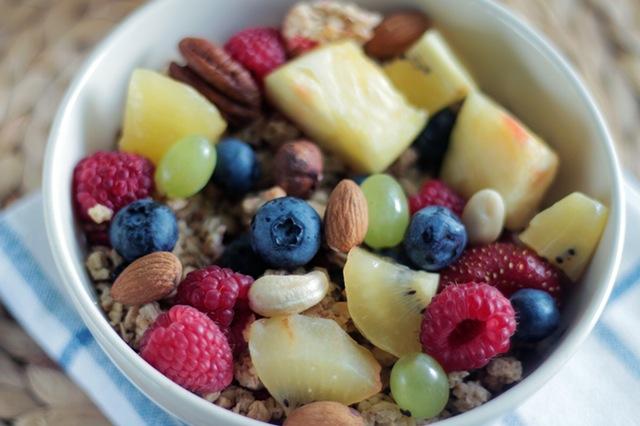A lot of health goals can be achieved by making certain corrective changes to everyday diet. People who have weight concerns, Alzheimer’s disease, or other comorbidities can reap benefits from a professionally-planned diet.
However, with the advent of the internet, people are more at risk of falling prey to fad diets that have little to no nutritional payoff. These sketchy diet myths spread misinformation, and could be doing more harm than good. Here are 30 such internet-famous claims that have no grounds in reality.
- Fresh fruits and veggies are healthier than canned, frozen, or dried
Sara Bleich, former director of nutrition security and health equity at the U.S. Department of Agriculture, told the New York Times that the claim makes no sense. Even as there are concerns that canned fruits may sneakily contain saturated fats and added sugar, Bleich recommends reading the label and only buying those that have minimum levels of additives.
It’s frustrating to see almost all websites demonizing fat. But that’s not the case, as fats have some nutritional values that only experts can validate. In several instances, this vilification has led many people, especially food manufacturers, to replace calories from fat with refined carbohydrates like white flour and added sugar which, according to Dr. Vijaya Surampudi, an assistant professor of medicine at the University of California’s Center for Human Nutrition, increased the rate of obesity as opposed to helping the people stay in shape.
- “Calories in, calories out” is all that matters
There is a common conception that burning more calories than one intake leads to weight loss, and, on the other hand, eating more than one burns can help in gaining weight. Experts say this indeed happens, but the effects are fairly short-lived. Doctors say many other factors may prevent one from losing weight, such as hypothyroidism, metabolic adaptations, or the use of certain medications. Nutritionists, therefore, recommend focusing on the food value of eatables rather than the caloric value, as the latter only flood the bloodstream with sugar and amino acids that are later transformed into saturated fat by the liver.
- Breakfast is the most important meal of the day
While many believe that a healthier breakfast means a healthier start to the day, research has shown it may not be the case for most people. It was found that postponing the time for breakfast during intermittent fasting has a slew of benefits, including improved blood sugar control with a visible reduction in rates of inflammation.
- Eating small, frequent meals can make you healthy
The claim seems unfounded, as research has found that people who eat smaller meals throughout the day tend to have increased hunger levels and desire to eat as compared to those who ate larger meals.
- People with type 2 diabetes should steer clear of fruits
Nutritionists say that juices that come by combining many fruits can shoot up blood sugar levels, but eating whole fruits barely has any adverse effects on diabetic people.
- Plant milk is healthier than cow’s milk
Plant milk is lower in protein content than cow’s milk. To say, cow’s milk has around eight grams of protein per cup, whilst plant milk has only one to two grams per cup. That aside, Kathleen Merrigan, a professor of sustainable food systems at Arizona State University and a former U.S. deputy secretary of agriculture, told the New York Times that plant milk has more added ingredients, which can cause many health hazards.
- White potatoes are bad for consumption
Potatoes are often shown in a bad light due to their high glycemic index, which can flood the system with digestible carbohydrates that can notch up blood sugar levels. Daphene Altema-Johnson, a program officer of food communities and public health at the Johns Hopkins Center for a Livable Future, debunked the myth while talking to the New York Times, saying that potatoes can be beneficial for health as they contain vitamin C, potassium, fiber, and other nutrients.
- Babies should not be introduced to peanut products before they turn one
New moms are discouraged by many to avoid introducing peanut or other allergenic foods such as eggs to a child below one year. However, doctors say unless the infant has severe eczema or other known food allergies, it’s okay to give them peanut products early on.
- Soy-based foods are linked to breast cancer
Higher doses of plant estrogens in soy called isoflavones have been found to increase the chances of breast tumor cell growth in animal studies, but the results were below the danger mark in human studies, Dr. Frank B. Hu, a professor and the chair of the department of nutrition at the Harvard T.H. Chan School of Public Health, told the New York Times.
- A protein shake is the best post-workout drink
Protein shakes aren’t the only drinks that help with post-workout cell regeneration. Research in Kelly Choi’s The 7-Day Flat-Belly Tea Cleanse found that having three cups of green tea per day leaves fewer markers of the cell damage caused by resistance to workouts, reports Eat This, Not That.
- High-fructose corn syrup is worse than table sugar
Sugar and HFCS have the same calorific value as any other food products with added sugar. Plus, HFCS has a higher glycemic index as well as higher fructose content than sugar. So it will be safe to say HFCS is only good for increasing the shelf-life, but isn’t any better than standard table sugar in other respects.
- Sea salt is better than regular table salt
The regular table salt has 2,300 milligrams of sodium per teaspoon and sea salt, which is produced from evaporated seawater, also contains roughly 2,300 milligrams of sodium per teaspoon. So, understandably, it makes no difference. Some may argue the latter contains sodium and magnesium, but the minerals exist in trace amounts. This means one needs to take in extremely high and potentially dangerous levels of sodium to acquire a significant dose.
- The Paleo diet is a great choice for weight loss
Paleo or low-carb diet, which became a raging sensation, centered around food items that are low on carbohydrates and high in protein. Eating bacon and steaks indeed helped shed those extra kilos, but experts said it can cause weight gain in the long term. Research has found that those who had a protein-heavy diet were at a 90% greater risk of gaining more than 10% of their body weight over time as compared to those who ate carbs.
- “Natural” foods are healthier
Foods with a “natural” tag aren’t always healthy, as they might contain harmful elements. For example, corn syrup is infused with HFCS, and natural Cheetos contain Maltodextrin, which can notoriously increase blood sugar levels, and all Raisin Bran, which soaks its raisins in both sugar and corn syrup, can make you diabetic.
- Egg yolks raise cholesterol levels
Egg yolks get a bad rap for nothing. Though it contains cholesterol, experts argue the levels are moderate and studies have shown that people who are eating 5-6 egg yolks with regular exercise and diet have seen no increase in their blood sugar levels.
- Dark chocolate is good for your health
Dark chocolates contain polyphenols derived from cacao plants, which have shown great promise in lowering blood pressure to aid in weight loss. A 2013 study in the journal Diabetic Medicine even found that those with the disease had their blood sugar levels in control by eating dark chocolates. It also boasts of high concentration of flavonoids, which are responsible for boosting heart health. However, flavonoid, as well as polyphenol contents, are significantly reduced during the manufacturing process, which makes the dark chocolates nothing but mere candies with fancy packaging.
- Oats are the best go-to option for weight loss
Oats are said to benefit those who have weight issues, and high blood cholesterol as they have a great grain offering. However, dietitians believe that if you have stomach or other gastronomical issues, especially irritable bowel issues, you can’t tolerate the amount of fiber from a bowlful of oatmeal.
- Orange is the best source of vitamin C
Vitamin C is an essential micronutrient that has great antioxidant properties, and therefore has a range of health benefits, including strengthening the skin to help build collagen and boosting the body’s metabolism. But the body requires a constant external supply of the component, as it can neither produce nor store it. Citrus fruits, especially oranges, contain high levels of vitamin C, it is believed. But there are many other sources from where you can take in the vitamin, including Kakadu plums, Kiwis, and acerola cherries, among others.
- Comfort foods instantly put you in a good spirit
It is believed comfort foods are like old pals, who can immediately uplift your mood. But a 2014 study published in the journal Health Psychology busts the myth. As part of the research, a group of participants was shown depressing films to “induce the negative effect.” They were then given their choice of comfort food or no food at all. Results showed that both groups recovered from their bad mood at the same time, regardless of whether they ate comfort meals or not.
- Multi-grain bread is better than white bread
It’s probably the biggest myth making the rounds in the nutrition space. To tell you, multi-grain bread is just white bread that is darkened by adding caramel or molasses to them, whereas “multi-grain” refers to different kinds of refined grains that have no credibility at all when it comes to improving health.
- Nutrition bars are great for weight loss
They are not. Nutrition bars are packed with additives. Worse, they contain four different types of sugars, which exceed the limit of what an adult woman should averagely consume in a day.
- “Trans fat” free foods are trans-fat free
FDA’s food labeling regulations permit a “0 grams trans-fat” claim despite the product having 0.5 grams of trans fat per serving. However, the World Health Organization permits only about 1 gram per 2,000 calories to cut down on the chances of heart disease. This means that you are taking in more amounts of trans fat than that limit from products dishonestly marketed as “trans-fat free.”
- Caffeine in energy drinks boosts metabolism
Caffeine can somewhat be effective in revving up the metabolism, but the empty calories obtained from energy drinks are hard to burn. What really can do miracles with the metabolic levels is drinking plain water, experts say.
- Skipping meals will burn calories
Skipping meals will do nothing but increase your desire to reach for high-calorie, high-fat junk foods. So instead of seeing pounds fly off, there is a good chance that you will put on some more.
- Diet sodas help you keep in shape
The diet community is becoming increasingly aware of the malevolence of diet sodas that secretly contain aspartame and sucralose, which induce hard-to-control food urges and make you obese, studies have found.
- Sugar makes kids hyperactive
There is no definitive evidence that it does, although most websites trade this idea. As part of a 1994 study, families with preschool-aged children were told to consume a diet either high in sucrose with no artificial sweeteners, a diet low in sucrose and containing aspartame (artificial sweetener), or a diet low in sucrose and containing saccharin (the placebo) and subsequent cognitive and behavioral tests proved that “neither sucrose nor aspartame produces discernible cognitive or behavioral effects” in those youngsters.
The body functions solely on food. Therefore, your diet should consist of all sorts of nutrients including protein, carbohydrates, and fats. However, a good diet should feature good sources of fat like nuts, seeds, fish, avocado, olives, and low-fat dairy as these assist in building cells, produce essential hormones, and give you energy.
- Steer clear of processed grains
While whole grains are always a better choice, this doesn’t mean you need to ditch all the processed grains as some of them are enriched with folic acid, which has a plethora of benefits such as improving fertility issues, reducing inflammation, and even lowering blood sugar levels.
- Late-night meals make you fat
There is no conclusive evidence they do unless the platter comprises high-calorie choices. Eating the right meal doesn’t cause weight issues, but, yes, if eaten right before bedtime, one may have heartburn or digestive disorders. Doctors, therefore, urge people to stick to proper and earlier mealtimes.












































